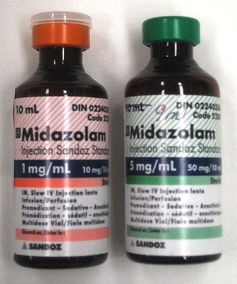nsnbc : The United Nations human rights office, yesterday, expressed grave concerns about the executions of four men in the United States state of Arkansas within a span of eight days to make use of one of the drugs used executions by lethal injection before its expiration date. The fourth convict to be executed Kenneth Williams. So why exactly is there such a rush to dispatch as many as politically possible before the expiration date of Midazolam stocks?
Elizabeth Throssell, a spokeswoman for the of the High Commissioner for Human Rights (OHCHR), spoke to reporters in Geneva saying that “Rushing executions can deny prisoners the opportunity to fully exercise their rights to appeal against their conviction and/or sentence, and can also lead to States’ shortening their clemency processes, thereby affecting prisoners’ rights.”
The OHCHR noted that the executions had been stayed, but Arkansas Governor Asa Hutchinson decided to proceed with the executions because the State’s supply of one of the drugs used in lethal injections – midazolam – was due to expire on 30 April and it was unclear whether further supplies could be obtained.
The use of midazolam has been criticized for failing to prevent suffering of pain, with reports of botched executions related to its use in the US states of Alabama, Ohio and Oklahoma.
The latest prisoner to be executed was Kenneth Williams, who was pronounced dead before midnight the previous night local time. Several witnesses who saw the execution of Kenneth Williams reported that the execution seemed violent, that Williams struggled for about thirteen minutes before he died.
Ledell Lee was executed on 20 April, and Marcel Williams and Jack Jones on 24 April. The executions in Arkansas took place after a “12 year de facto moratorium” on the use of the death penalty in the state, Ms. Throssell said. The number of death from executions overall had declined steadily over the past few years, from 52 in 2009 to 20 last year. Since the start of 2017, 10 executions had been carried out.
The OHCHR spokesperson noted that the “the UN opposes the death penalty in all circumstances and we call on all Governments that retain it to establish an official moratorium on all executions with the aim of abolishing the death penalty.”
On 1 March, the Human Rights Council held a biennial high-level panel discussion on the human rights violations related to the use of the death penalty, in particular with respect to the prohibition of torture and other cruel, inhuman or degrading treatment or punishment.
So why the rush to use drugs before their expiration date?
In 2009 Hospira, the company that supplied the drug Thiopental found that it could no longer source its active ingredients in the United States of America. Hospira found a company in Milan, Italy which agreed to provide the missing component. However, once the Italian government learned of what the drug was being used for it refused to allow its export.
The development prompted an ad hoc pattern of procurement and a semi-official embargo in response. First the UK and Germany suspended right of companies to export drugs to the USA for use in lethal injections. The semi-official embargo should develop into a Europe-wide embargo so drugs approved for lethal injections in the USA became scarce. When the U.S. state of Oklahoma found they no longer could source Thiopental they switched to another drug, Pentobarbital, supplied by the Danish company Lundbeck. When Lundbeck discovered that their Pentobarbital was actually being used for executions and not for treating seizures, as it was designed to do but for masking them, they ceased to ship the drug to the USA.
Finally, in 2011 the halting of supplies by Lundbeck was followed by a Europe-wide decision of nearly every big pharmaceutical company to refuse to provide any drugs to America for lethal injections, an embargo encouraged and backed by the European Union itself. By 2013 the amounts of lethal stock in the drug cupboards of Texas, Ohio and Oklahoma had dwindled to such a degree that death by lethal injection was, for all intents and purposes, foreclosed. By 2015 the number of executions in the 31 states still using this form of extreme punishment was down to just 28, compared to 98 in 1999.
Facing the prospect of not being able to execute inmates by lethal injection, in 2014 many states started to simply try other drugs; In many cases drugs that were not approved for lethal injections were used in what many described as “terminal human experimentation”. Instead of Pentobarbital, many states chose Midazolam. In other words, powerful barbiturates Thiopental and Pentobarbital were substituted with the relatively mild sedative Midazolam.
The drug is primarily used on children and the aged because its effects are so mild. Now, in Arkansas, the decision was made to use as much of the remaining Midazolam before the expiration date of stocks on April 30. “Let’s use it. You never know if you can get more, or when, or where, and at least we botched a few executions with this one before. It’s better than starting at zero and experiment all over again” – seems to be the reasoning behind political posturing and euphemisms.
CH/L – nsnbc 29.04.2017
Source Article from https://nsnbc.me/2017/04/29/un-human-rights-office-troubled-by-string-of-executions-in-us-before-drug-expiration-date/
 RSS Feed
RSS Feed















 April 29th, 2017
April 29th, 2017  Awake Goy
Awake Goy 











 Posted in
Posted in  Tags:
Tags: 













